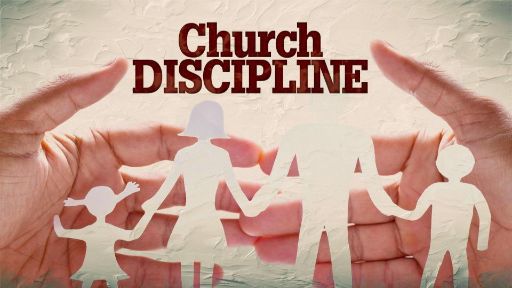-
My Brother's Keeper
Contributed by J. Curtis Goforth, O.s.l. on Nov 28, 2017 (message contributor)
Summary: Jesus’ teaching in this chapter reminds us that sin is a public matter and not just something "between me and Jesus."
“My Brother’s Keeper”
Sermon on Matthew 18:15-20
Rev. J. Curtis Goforth, O.S.L.
September 4, 2005
One Christian cannot call out another Christian about their sin without conflict. Conflict has been a part of the church since its inception. It is somewhat comforting even to know that we are not alone in having to deal with conflict in the church. Just read Paul’s epistles to the churches he served, they are all about conflict.
I have a favorite story about conflict taken from the comic strip Peanuts. You know, the one with Charlie Brown and Linus and Snoopy. In this strip a conflict arises between Lucy and Linus. Lucy bursts into the living room where Linus is watching TV and she demands that Linus change the channel threatening him with her fist if he doesn’t. Linus says, “What makes you think you can walk right in here and take over?” “These five fingers,” says Lucy. “Individually they’re nothing but when I curl them together like this into a single unit, they form a weapon that is terrible to behold.” “Which channel do you want to watch?” asks Linus. Turning away, he looks at his fingers and says, “Why can’t you guys get organized like that?”
Most of us shy away from conflict. And when conflict arises in the church, most of us would rather ignore it and hope it goes away. The amazing thing about this passage and the most unsettling thing about this passage is how it makes sin an intensely public matter instead of keeping it a purely private one. The sins of an individual are brought before the community and are held up as something to be corrected, not just something the sinner needs to ask God to forgive them for.
Many times we use Jesus as a shortcut and as a way of avoiding genuine repentance. We privatize sin and think that sin is just something that is between “me and Jesus.” We think that I just need to ask Jesus to forgive me and then everything is okay, completely neglecting the impact of sin on our community and church.
In Judaism, there is the practice of tishuvah, a process whereby a person seeks to be reconciled to their brother or sister whom they have sinned against. It is not enough just to ask God to forgive us, we must ask those in the church we have wronged to forgive us too. And, this teaching reminds us that we are to call out those who have wronged us.
Now there is a fine line between sin and a bad habit. There is a big difference between somebody who eats too much chocolate and somebody who embezzles money from the church. There is a big difference between someone who spends too much money on their hobby and somebody who is having an affair.
Some of the lessons and teachings of Jesus seem so simple at first. But these teachings get a lot more difficult when they are applied to our lives. We are reluctant to call out those people who have sinned against us. We are aware of our own sinfulness as well. As Matthew’s gospel tells us earlier on in chapter 7:
"Why do you look at the speck of sawdust in your brother’s eye and pay no attention to the plank in your own eye? How can you say to your brother, ’Let me take the speck out of your eye,’ when all the time there is a plank in your own eye? You hypocrite, first take the plank out of your own eye, and then you will see clearly to remove the speck from your brother’s eye.
But this just reminds us of the necessity of removing that which hurts our vision—our own sin. If we are timid about calling out someone about their sin because of our own sin, we need to call ourselves out first. Being sinful creatures does not relinquish our duty as a community called the church to keep each other accountable to the life to which Christ has called us.
But there are other obstacles to obeying Christ’s teachings here. If the person who has sinned against us is also our friend, we shy away even further from confrontation in order that the friendship is not negatively impacted further. In ancient Greece, the famous philosopher and ethicist Aristotle made friendship the basis for ethics or proper conduct, yet we make it the excuse for immoral behavior.
This teaching flies against our natural instincts nowadays. We are a deeply individualistic culture. We think people are supposed to mind their own business. We think church is a place for fellowship and a place where we can go to feel better about ourselves and our world. But that does not even resemble the church Jesus calls us to be. Jesus calls us to be a community of believers, willing to forgive others and to receive forgiveness ourselves. We must remember when we are thinking about this teaching of Jesus that it was given in between two other stories that relate to this topic. These stories form a sort of sandwich around this teaching to rebuke.

 Sermon Central
Sermon Central



